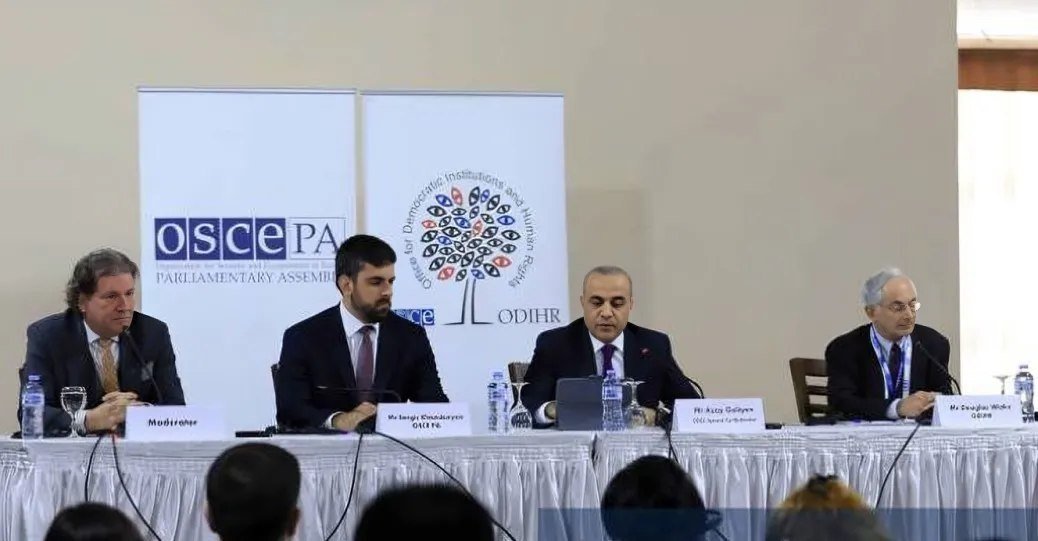Uzbekistan (TDI): Over 74% voter turnout and enhancing women seats declared key successes of Uzbek elections on the way towards democracy declared by International Observer Missions. They stated these facts during a Press conference held at Tashkent.
At the October 27 elections, international observer delegations from the Organization for Security and Cooperation in Europe (OSCE) structures hosted a Press conference.
As mentioned during the press conference, Uzbekistan’s parliamentary elections on October 27 were historic, given the nation’s extensive reforms.
According to the delegation, these elections showed how the electoral system had changed significantly and how democratic processes had been strengthened.
Moreover, one of the most noteworthy improvements was the increase in the number of women in parliament.
Read More: OSCE Chairman Calls Russian Foreign Minister
During the press conference, after the gender quota for candidates was raised from 30% to 40%, women could hold 47 of the Legislative Chamber’s 150 seats was also discussed.
This fact highlights the increasing role of women in Uzbekistan’s political life.
The Central Election Commission’s (CEC) high degree of dependability in election preparation was also underlined. Timely decision-making and frequent broadcasting guaranteed electoral transparency.
There were about 20 million registered voters, and the public could observe how the electoral procedures were run.
However, legislative changes in 2023 lifted limits on some groups’ ability to vote, indicating the nation’s adherence to international norms.
The CEC also held consultations and paid attention to inclusion to boost the involvement of those with disabilities. During debates, materials were translated into sign language and available in Braille.
Read More: Kazakhstani Deputy Foreign Minister joins OSCE journalist safety event
All groups could access the electoral process because ballots were printed in local languages and Uzbek.
74.7% of voters turned out on election day, which was peaceful and well-organized.
This suggests that citizens are very interested in their nation’s political affairs.
A significant step in enhancing women’s representation in politics and fortifying democratic systems was the 2024 parliamentary elections.
These reforms reflect the aim for a more inclusive and open political system, which is essential to Uzbekistan’s continued development.
Additionally, Douglas Wake, head of the OSCE Office for Democratic Institutions and Human Rights (ODIHR) election observation mission, Sargis Khandanyan, head of the OSCE Parliamentary Assembly delegation, and Azay Guliyev, special coordinator and head of the OSCE short-term observers, shared their views of the monitoring.
Aisha Noor works for The Diplomatic Insight.



